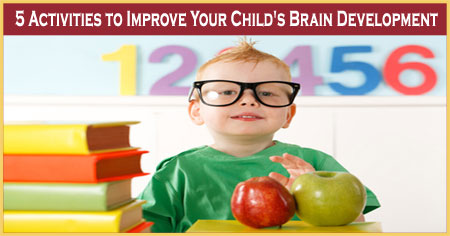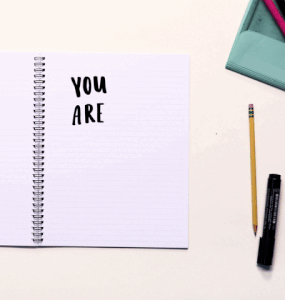Parenting(Age 5 to 8) | Academic | General | Parenting(Age 9 to 12) | Parenting(Age 13 to 16) | Aug 26, 2021
5 Simple Ways To Improve Your Child’s Brain Development And Learning Styles

The first few years of a child's life are essential for their future health and development. One of the key reasons is the rapid growth of the brain, which begins before birth and continues through early life. Even while the brain develops and changes throughout adulthood, the first eight years can build the foundation for future learning, health, and success. Children are born with the ability to learn and have a wide range of talents to master during their lives. Kids look up to their parents, grandparents and other family members as their first teachers to gain the skills they will need to become self-sufficient and live healthy, wealthy lives.
Get Free Consultation Now!
Each Child Has A Unique Learning Style
In technical terms, a student's learning style refers to how he or she prefers to receive, process, grasp, and retain knowledge. Individual learning styles are influenced by a variety of elements, including cognitive, emotional, and contextual influences, as well as prior experience. To put it another way, each individual is distinct. Educators must be aware of the variances in their students' learning styles to incorporate best practices into their daily activities, curriculum, and assessments.
Why Is Brain Development Important?
From birth to three years old, children's brains develop quickly. All aspects of a child's growth are affected by brain development. Motor (physical), language and communication, social and emotional development, and cognitive development are the four main aspects of development.
Cognitive development is the process by which a child's intellect develops, and it involves skills such as thinking, learning, and problem-solving. These abilities impact all other aspects of development. Learning and development are crucial during a child's first three years of life. 90% of brain development occurs before kindergarten. By the age of three, it has grown to roughly 80% of adult size, and by the age of five, it has grown to about full adult size.
Many parents wonder how they may support their child's cognitive development. The effective solution is to engage your child in daily activities such as playing actively, reading, and being there for him or her when he or she is stressed.
- Playing
Playing is an excellent approach to support the development of a baby's or toddler's brain. To actively engage your child's brain, it could be a game, talking, or singing. Playing "peek-a-boo" and holding toys out for a child to observe helps the brain develop.
- Peace
Stress can affect children. Embrace and hold your child. Let them know you are there to support and encourage them when they are stressed. According to studies, attentive, loving, and supportive care helps babies cope with stress better than inconsistent care.
- Reading
Reading is one of the most effective strategies to help a child's brain develop. Reading helps a child develop language and communication abilities even before he or she can recognize letters or words. In a child's mind, hearing words and seeing pictures connect the two.
Different parts of the brain control different capacities, such as movement, language, and emotion, and they develop at different speeds. As connections finally link with one other in more complicated ways, brain growth develops on itself. This allows the youngster to move, speak, and think in more complicated ways because of this. Children develop brain connections through their everyday experiences beginning in childhood. They develop through pleasant connections with their family members and by interacting with the world through their senses.
How Can You Improve Your Child’s Learning Styles?
Learning speed is not the only factor to consider while working on your child’s brain development. Students must be able to retain material accurately, recollect it later, and apply it effectively in a multitude of environments. It takes time to become a successful and efficient student, but putting a handful of these strategies into everyday practice can help your child get more out of their study time.
- Having options is always effective
Students may enhance their memory by doing a variety of various things. Basic strategies like strengthening your focus, avoiding cram sessions, and organizing your study time are excellent places to start, but there are many more psychological principles that can help children learn more effectively.
- Discover your personal style
Spend some time thinking about a lesson or skill that you recently learned to discover your learning method. Simply continuing to learn is one surefire approach to becoming a more successful learner.
- Recognize the variety of learning styles available
Supporting your child in focusing on learning in multiple methods is one of the finest strategies to learn. Find a technique to rehearse the knowledge both verbally and graphically, rather than just listening to a podcast, which requires auditory learning. You can further solidify their knowledge by learning in multiple ways.
- To learn how to link
Relational learning, which involves connecting new information to what the kids already know, is another excellent strategy to improve their learning efficiency.
- Start teaching someone else
Teaching what they have already learned to someone else is a good technique for learners to retain what they have just learned. They will be able to talk about a difficulty by determining the main points that someone else would need to know to understand it as well as by teaching a topic they have just learned to someone else.
When Applied Correctly, It Can Do Wonders
Many things influence a child's brain development, including their connections, experiences, and surroundings. Children who have better connections early in life grow up to be healthier and more successful in school and life. From birth to three years, a child's brain goes through an incredible period of development, generating about a million neural connections per second.
Children are greatly influenced by their parents and teachers. Understanding how a child learns can help us teach them better. We can assist youngsters to recognize their strengths and individual distinctions as adults while also supporting them through difficulties. You can look for real-life events that can help your child learn more.
















Post a Comment: